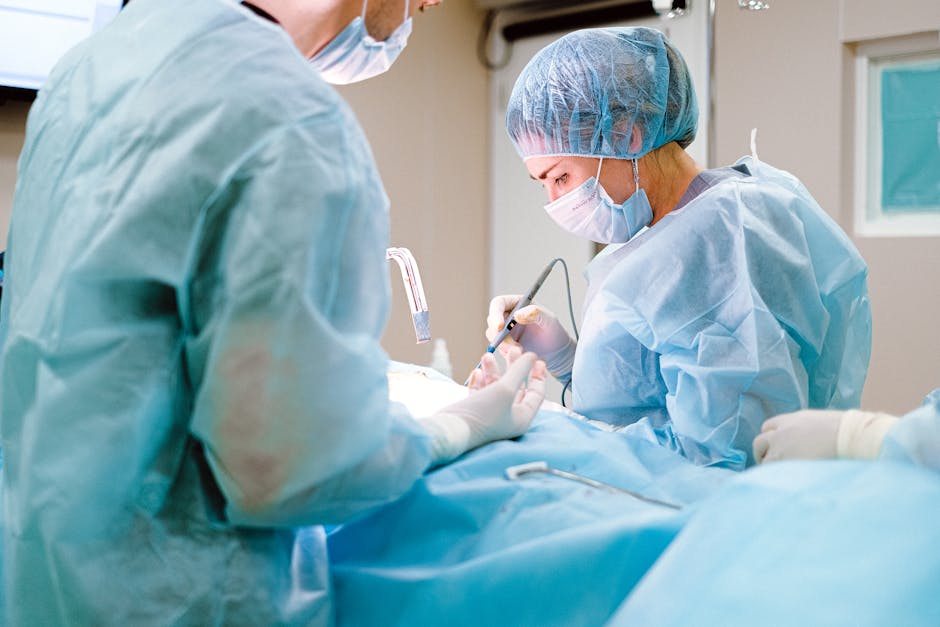Our Blog
Advances in Biliary Tract Surgery and Patient Outcomes
March 30, 2024
Overview of Biliary Tract Surgery
Biliary tract surgery is a procedure to treat issues in the bile ducts or gallbladder. Gallstones and conditions like bile duct obstruction are common reasons for this surgery. The goal is to restore proper bile flow and alleviate symptoms such as pain and jaundice. Laparoscopic surgery is a common approach, using small incisions for quicker recovery. Complications are usually minimal, but it’s essential to follow post-operative care instructions for the best outcomes.
Types of Biliary Tract Surgeries
Biliary tract surgeries can include open surgery or laparoscopic surgery. Open surgery requires a larger incision, while laparoscopic surgery uses smaller incisions and specialized tools. Cholecystectomy is a common surgery to remove the gallbladder. Common bile duct exploration may be needed to address issues in the bile ducts. Hepatectomy involves removing a part of the liver. Sphincterotomy is a procedure to widen the opening of the bile duct. These surgeries aim to treat conditions affecting the biliary tract and improve patient outcomes.
Common Conditions Requiring Biliary Tract Surgery
Gallstones are the most common reason for biliary tract surgery. They can block the bile ducts and cause pain and complications. Other conditions like bile duct strictures, biliary tract infections, and tumors may also require surgery for treatment. In these cases, surgery can help alleviate symptoms and improve the patient’s overall health.
Benefits of Advances in Biliary Tract Surgery
Recent advancements in biliary tract surgery have led to improved patient outcomes and recovery. These advancements offer benefits such as shorter recovery times, reduced risk of complications, and more precise surgical procedures. Additionally, patients undergoing these advanced surgeries may experience less pain post-operation, shorter hospital stays, and overall better results compared to traditional surgical methods.
Minimally Invasive Techniques in Biliary Tract Surgery
Minimally invasive techniques in biliary tract surgery are becoming more popular due to their benefits for patients. These methods involve smaller incisions, leading to less pain and faster recovery compared to traditional open surgeries. Patients undergoing minimally invasive biliary tract surgery often experience shorter hospital stays and lower rates of complications. This approach utilizes specialized tools like tiny cameras and small instruments to perform surgery with precision. The advantages of minimally invasive techniques may include reduced scarring, less blood loss, and a quicker return to daily activities.
Surgical Innovations and Technology
Surgical innovations and technology have greatly improved biliary tract surgery outcomes. Procedures like laparoscopic and robotic surgeries offer patients less pain, faster recovery, and smaller scars compared to traditional open surgery. Robotic surgery, in particular, provides surgeons with enhanced precision and flexibility during operations. Surgeons can now navigate complex biliary tracts with more accuracy, leading to better outcomes for patients.
Patient Outcomes and Success Rates
Patient outcomes and success rates are crucial measures in evaluating the effectiveness of biliary tract surgery. High success rates indicate that the surgery is generally effective in treating biliary tract conditions. Studies have shown that patients undergoing biliary tract surgery often experience improved quality of life and reduced symptoms. Monitoring patient outcomes allows healthcare providers to make informed decisions about treatment plans and improve patient care.
Preparing for Biliary Tract Surgery
Before undergoing biliary tract surgery, it is essential to prepare for the procedure. Here are some key steps to help you get ready: Ensure to follow your healthcare provider’s instructions regarding fasting before the surgery. Pack a bag with essential items for your hospital stay, such as comfortable clothing and personal toiletries. Arrange for someone to drive you to and from the hospital on the day of surgery. Lastly, discuss any concerns or questions you have with your medical team to alleviate any anxieties you may have leading up to the surgery.
Recovery Process and Post-Surgery Care
Recovering from biliary tract surgery is crucial for your overall well-being. After the surgery, you will typically spend a few days in the hospital under observation. Your medical team will closely monitor your progress to ensure a smooth recovery. Once discharged, it’s essential to follow all post-surgery care instructions provided by your healthcare provider. This may include taking prescribed medications, maintaining a healthy diet, and attending follow-up appointments to track your progress. Remember to listen to your body and rest as needed during this recovery period to aid in your healing process.
Conclusion: Future of Biliary Tract Surgery
Biliary tract surgery is advancing rapidly, with new techniques and technology improving patient outcomes. The future of biliary tract surgery looks promising, with a focus on minimally invasive procedures that reduce recovery time and complications. Surgeons are also exploring robotic-assisted surgery to enhance precision and outcomes. Additionally, ongoing research aims to further personalize treatment plans for better results tailored to each patient’s specific needs. The future of biliary tract surgery is bright, offering patients more effective and efficient treatment options.
